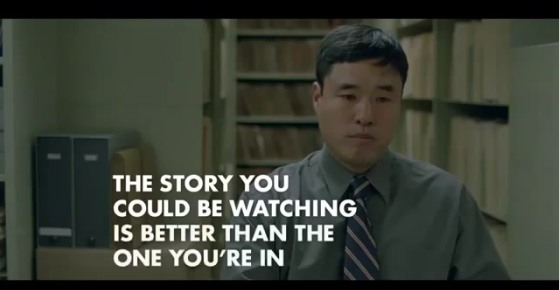I received my copy of the book Love Wins by Rob Bell today. Right now the kids are napping so I had to take a break from the home projects I was working on to give them some peace and quiet. Here’s my reaction to the preface:
My reaction so far is not positive.
Preface
Bell explains why he wrote the book – for those who don’t approve of the gospel being taught in the evangelical church[1]. Is it a problem with the message that people see it as foolishness? The Bible says that’s going to be people’s reaction to it[2], and Paul lived this out, being repeatedly beaten, threatened, and jailed by unbelievers in various cities where he shared the gospel – clearly if it was worth beating up the messenger, the people didn’t consider it “good” news[3]. Should Paul have changed the message to make the good news seem “good” in their eyes?
Bell explains that he those on his side (those who disapprove of the gospel taught by the church) have become aware of the truth that Jesus’ story has been hijacked. If you teach what Bell disagrees with, you’re a spiritual terrorist, hijacking the gospel. Here on the first page of text Bell sets the tone to be clearly Us – the enlightened disapprovers of the church vs. Them – the hijackers.
Scripture:
Bell talks about scripture in three different terms: “sacred text,” “stories” and “ongoing discussion.” Neither of these terms are exclusively applied to the Christian cannon of scripture, however. Anyone can tell stories, anyone can discuss things. There’s no indication that scripture is any different from anyone telling a story or having a discussion today.
Sacred Text:
Rob specifically addresses “the sacred text” once in the intro:
The ancient sages said the words of the sacred text were black letters on a white page – there’s all that white space, waiting to be filled with our responses and discussions and debates and opinions and longings and desires and wisdom and insights.
I can’t figure out who ever said this. Clearly by calling these people “sages,” Bell thinks they carry authority in the discussion. But who are they? It was at this point that I realized there’s no footnotes. No endnotes. Bell doesn’t cite a single source. Who said this? What makes them a sage? Why are they worth listening to? Google was no help. The closest I got was a quote by the anti-religious Proust who wasn’t writing about sacred text.
What Bell is promoting is the idea of eisigesis – pushing our own ideas and opinions into a text, and considering that to be what the text really means. This is the opposite of exegesis, a process in which we seek to discover what the text means in itself, and try to hold back our own opinions and pre-conceived theology. I value exegesis, and believe that my ideas should change in response to the text, rather than changing what the text means by filling in the white space and amending scripture to mean whatever I want it to.
I’m troubled by this perspective from a pastor who in the intro to his book strips scripture of it’s authority, placing the authority instead in his own opinions that he is free to force onto texts – and commanded to by anonymous sages that somehow escaped being filed by Google.
Stories:
Bell says Jesus isn’t interested in telling the stories that he disapproves of, and they have “nothing to do with what he came to do.” Clearly, Jesus must have never told those stories. Right? On page 1, I don’t know what stories he’s referring to, but it’s clear that Jesus is not interested in the stuff being said by the hijackers. I’m troubled by the emphasis on story – stories are told as a way to communicate truth. Truth is best communicated by the story. But the emphasis is not on the story itself, but on the truth it communicates. If something is just a story, then we should not expect any truth behind it. That idea strips the authority of the truth that good stories communicate.
Bell says it’s time to reclaim the lost plot about what Jesus came to do. If the plot was lost and must be reclaimed, I’m relying on Bell to show how Jesus, the disciples, and the early church showed the true plot, and that all of these groups never told the stories that he disapproves of in the church today. I’m curious to see where he believes the gospel of the church today came from.
Ongoing Discussion:
Is scripture divine? Well, kind of. Discussing important stuff is divine.
What qualifies as “important”? Who decides? Is all discussion equally divine? Are all words of everyone divine?
This all brings up another question: If all of the discussion is divine, is every participant equally authoritative?
No. Not all voices are equal.
So far, this is the one question Bell answers. Not everyone is on equal footing in the discussion, and you may not be welcome here.
Bell takes a very strong stand on who can and who cannot participate in worthwhile discussion. He expands the Us vs. Them attitude from page 1, that the spiritual terrorist hijackers are misguided, toxic, and subversive to Jesus’ message. Bell, on the other hand has the truth of love, peace, forgiveness, and joy.
Not a charged atmosphere at all – as we enter this book, if you agree with Bell you’re in favor of love, peace, forgiveness and joy. If you disagree, you’re a misguided toxic terrorist hijacker subverting Jesus.
Which side do you choose?
A few differences between Bell’s book (so far) and my reaction:
- When I ask questions, they’re real questions. I’d love to know the answers. I’m just just being cool and questioning things.
- Given how much I wrote about the preface, my reaction may be longer than his book. But hey, the discussion is divine! (Well.. unless I disagree with him, in which case I’m a toxic spiritual terrorist hijacker – in other words, you are not to listen to anyone else that disagrees with Rob. They’re toxic, and Jesus isn’t interested in what they have to say!)
- Look! I’ve cited my sources with footnotes!
Footnotes
[1] – I’ve written this book for all those, everywhere, who have heard some version of the Jesus story that caused their pulse rate to rise, their stomach to church, and their heart to utter those resolute words, “I would never be a part of that.” viii
[2] “For the message of the cross is foolishness to those who are perishing, but to us who are being saved it is the power of God.” 1 Corinthians 1:18. This passage is also very clear that there is a difference between those who are perishing (which seems to mean in the state of perishing but the perishing is ongoing and not yet in it’s fullness) contrasted with those who are being saved (in the state of being saved, but the saving is ongoing and not yet in it’s fullness)
[3] 1 Corinthians 11:25 “Three times I was beaten with rods, once I was stoned, three times I was shipwrecked, a night and a day I have spent in the deep.”





 Rob Bell, pastor, author, and speaker in the popular Nooma video series, has just published a book called “Love Wins.” The book is a challenge to Christians to re-think our views of hell, heaven, and salvation.
Rob Bell, pastor, author, and speaker in the popular Nooma video series, has just published a book called “Love Wins.” The book is a challenge to Christians to re-think our views of hell, heaven, and salvation. The idea communicated to me so far that we all experience “hell” every day on earth is packed so full of presuppositions – it presumes that “hell” is simply synonymous for “thinks I don’t like” or “things I think are awful.”
The idea communicated to me so far that we all experience “hell” every day on earth is packed so full of presuppositions – it presumes that “hell” is simply synonymous for “thinks I don’t like” or “things I think are awful.”
